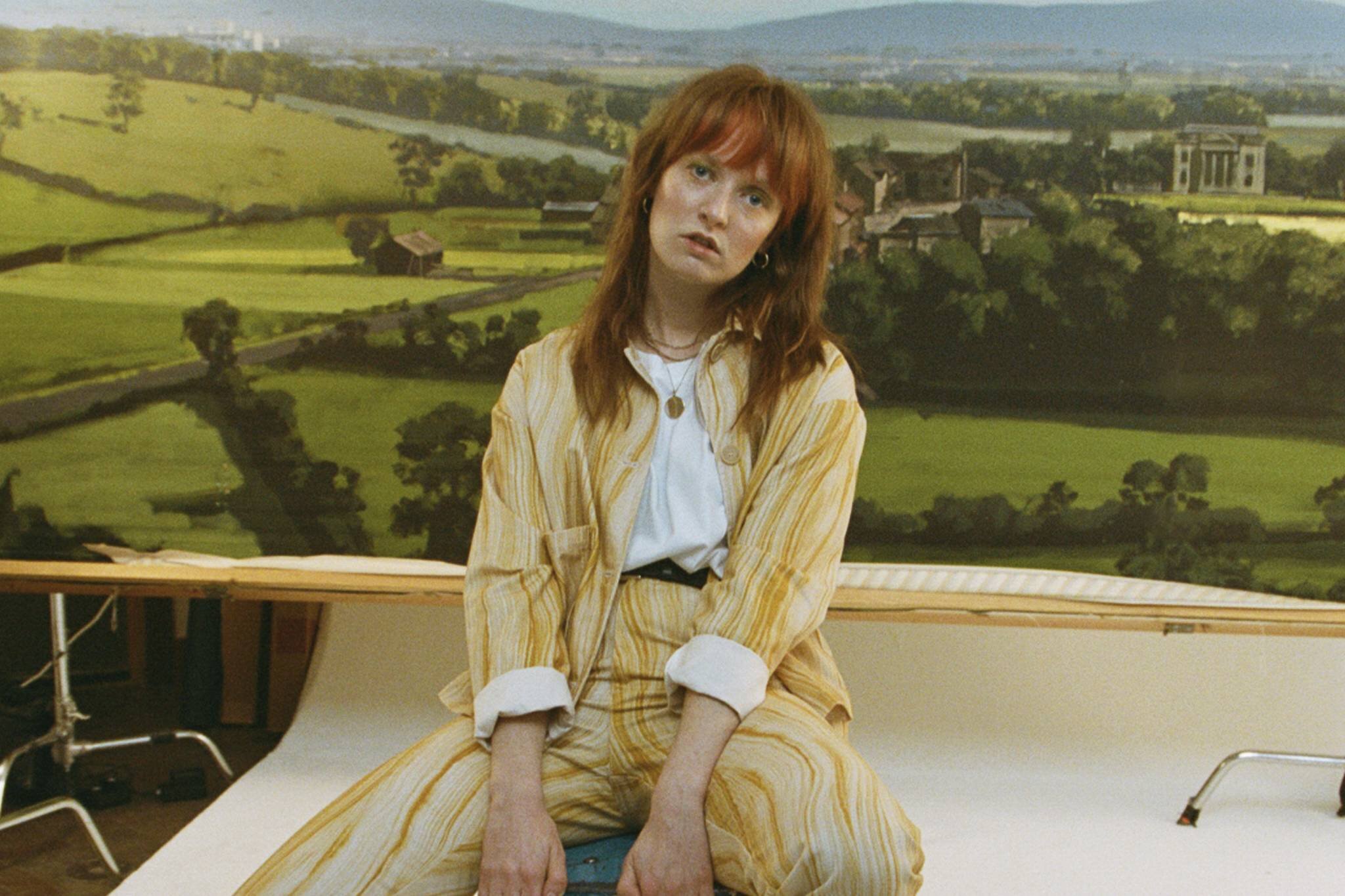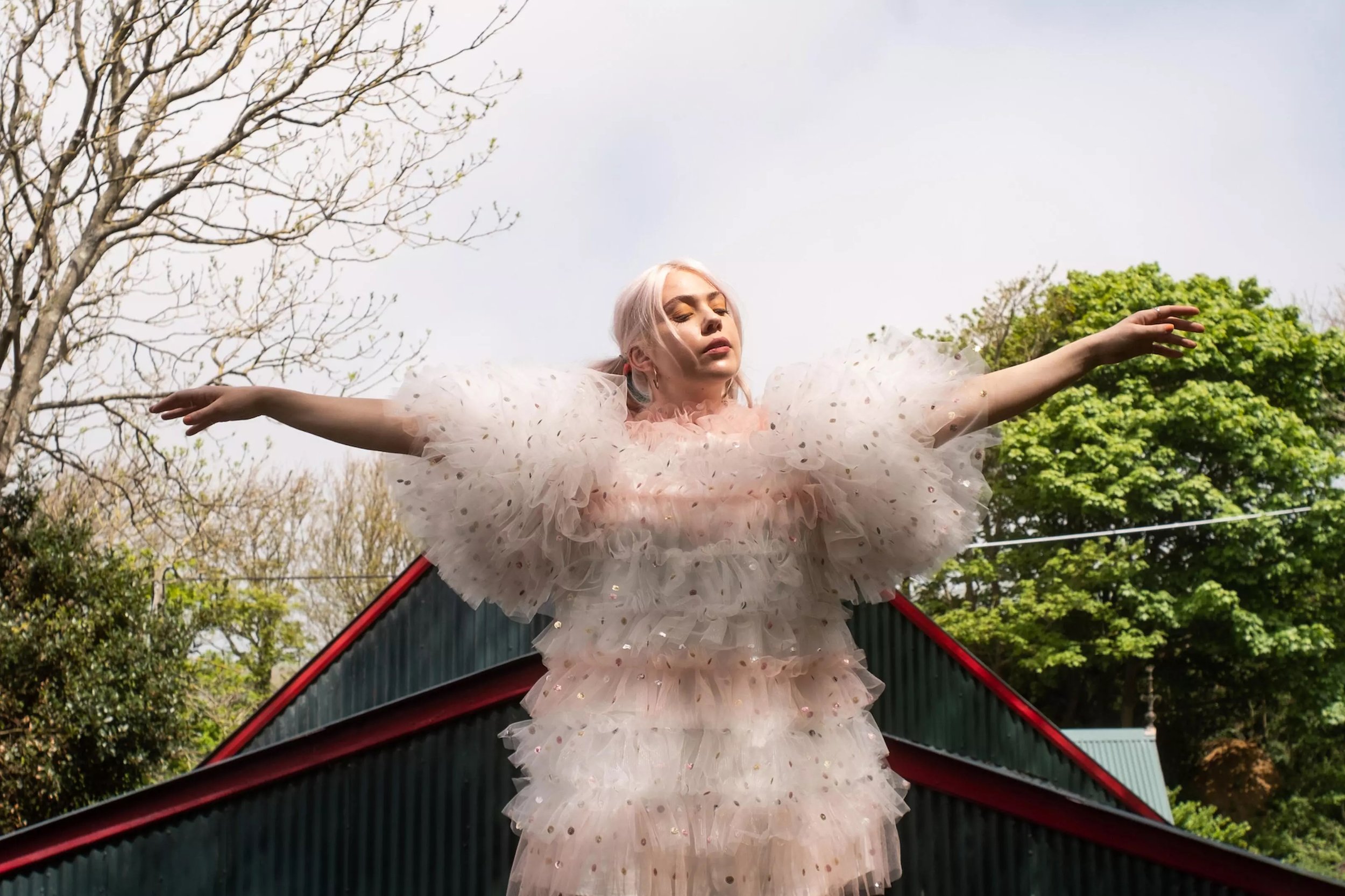Samia

There are precious few times in an ordinary life when you know you’re probably about to make someone cry, but for Samia Najimy Finnerty - better known mononymously as Samia - it’s become an evermore recurring theme. In fact, almost every time she steps on stage, there’s a fairly high likelihood that tears are going to be shed. “I’m always on the brink and then I see someone cry and I’m like, ‘Oh my god!’” she laughs. “It’s just really wild and special to see a human being that was a stranger before, and [now] we’re just sharing this deeply emotional thing.”
It’s no surprise, however, that Samia gets this kind of reaction. In the six years since she’s been releasing music, her songs have cut to the core of pretty much every emotion that could be experienced as a young woman. Her first singles ranged from exploring the struggles of growing up in ‘21’ (“You’re alive and you’re on fire / Why are you so tired?”) to the fall-out of young love in ‘Django’ (“Oh, how easily you let me go / How I matched you in the moment, I don’t know”). In ‘The Night Josh Tillman Listened To My Song’, she even tackles the universal desire to get a nod from Father John Misty - and the subsequent fear of his rejection (“Do you like me? Never mind, don’t tell me”).
“Usually, it’s just that I’m very upset,” she says of her lyrical inspiration. “The [songs] that end up sticking are usually for times that I just need to get something out, or it’s something I want to communicate but I don’t know how to say it to someone, or I’m afraid to say it to someone.”
Samia first began writing to express her feelings when her school teacher, also a poet, introduced her to the form at 12 years old and encouraged her to give it a go. “[My poetry] was really melodramatic, so not much has changed,” she smiles, citing Maya Angelou, Anne Sexton and William Carlos Williams as perpetual poetic favourites. “I was always shy, and I still am, and I have a really hard time with conflict and confrontation. Poetry has always given me a means to communicate stuff that’s too scary to say to someone in a conversation.”
It was around the same time that Samia began falling in love with Elliott Smith, The National, Nirvana and Daniel Johnston. Initially, she went around her New York high school begging everyone she could to let her in their band, before she started to form the roots of her solo project shortly after starting university. “I would have been in a band, totally!” she reminisces. “But I think, because writing was the most important thing to me, I didn’t want to drag anyone into my shit or be the hysterical mascot for anybody else.”
Embracing her distinct viewpoint, her breakthrough came with 2020 single ‘Is There Something In The Movies?’: a heartstring-pulling depiction of her disenchantment with the entertainment industry (“Everyone dies but they shouldn’t die young / Anyway, you’re invited to set”). As the child of actors Kathy Najimy and Dan Finnerty, Samia has experienced what it’s like to be inside of that world firsthand. “I witnessed people having really bad experiences at a time when I was just starting to understand the world,” she explains. “I was always really confused about why people were prioritising these things that were ultimately hurting them, and it took me a really long time to understand the mechanism of the industry and how it gets people.”
Samia has evidently taken in and learnt from these early life lessons. Surrounding herself with a supportive and loving circle as her star-power grew, she emphasises her gratitude at being involved with the indie scene and a community that doesn’t put pressure on her to be anything other than herself. However, as a young woman singing about emotional topics, she has found herself inevitably paired with the ‘sad girl music’ label. “I get why that label is so annoying to a lot of people, especially because it ends up being pretty sexist when people are just grouping women together and calling them ‘confessional’ when they’re not, and calling them ‘sad’ when their music is just not incredibly upbeat. It just proves that they’re not really listening to it,” she shrugs. “But I think, with my music in particular, it is really sad and it is also really confessional, so I never get offended by being called a ‘sad indie girl’. I get it!”
Second album ‘Honey’ embraces this ethos and drills down even further, picking the baton up from the coming-of-age situations that informed 2020 debut ‘The Baby’ and dissecting them across 11 poignant pop songs. Created during the pandemic, that time of intense reflection allowed Samia to really sit with herself and make sense of past decisions. “It was a lot harder to do this time,” she explains of the writing process, “because last time it was all so immediate and chaotic and I was drinking a lot. This time I wasn’t. I had to be very present, and thoughtful and honest.”
She highlights ‘Honey’’s closing track ‘Dream Song’ as encapsulating the thesis of the album as a whole. All about zooming in and out on certain moments in life, its lyrics “You can see it in your daughter’s eyes / That’s the purpose and the price” sit at its centre, conveying the scope of ideas that she wanted to portray. “It’s sort of a nod to it all being cyclical, and the life and death themes that are all really present on the record,” she nods. “I think that the record is, at some points, really incredibly sad and also hopeful, and I feel like hope is the saddest human emotion. That line encapsulates all of that for me, where it can be both.”
Elsewhere ‘Honey’ delivers lyrical gems that can resonate with anyone growing up. ‘Kill Her Freak Out’ hints at post-breakup anger (“I hope you marry the girl from your hometown / And I’ll fucking kill her, and I’ll fucking freak out”), while ‘Sea Lions’ deals with relationship downfalls (“I don’t wanna talk / I don’t ever wanna work it out”) and ‘To Me It Was’ reflects on the past (“How much better can anything get / Than sitting on your porch remembering it?”).
“I was trying to understand how you can be trying to broaden your perspective and think about life in this enormous way, and also obsess over these tiny things that are happening in your life,” she says. “I think that’s an experience that a lot of my friends have as well, like, trying to understand why you care about the things you care about.”
The final result is a record that feels like revisiting a teenage diary while simultaneously trying to find your place in the world as an adult. Already drawing comparisons to the likes of Phoebe Bridgers, ‘Honey’ is both personal and universal, and sees Samia diving deep into the moments that have shaped her. “I think everyone’s dream of consciousness is totally unique and sometimes the way that we talk to each other isn’t, because we’re trying to find a point of connection to survive,” she notes. “But then there’s this whole inner world that is really magical and beautiful and everyone has their own and everyone perceives things totally differently. I just love songs that are a window into that person’s totally insane unique world.”
DIY Magazine February 2023 issue




